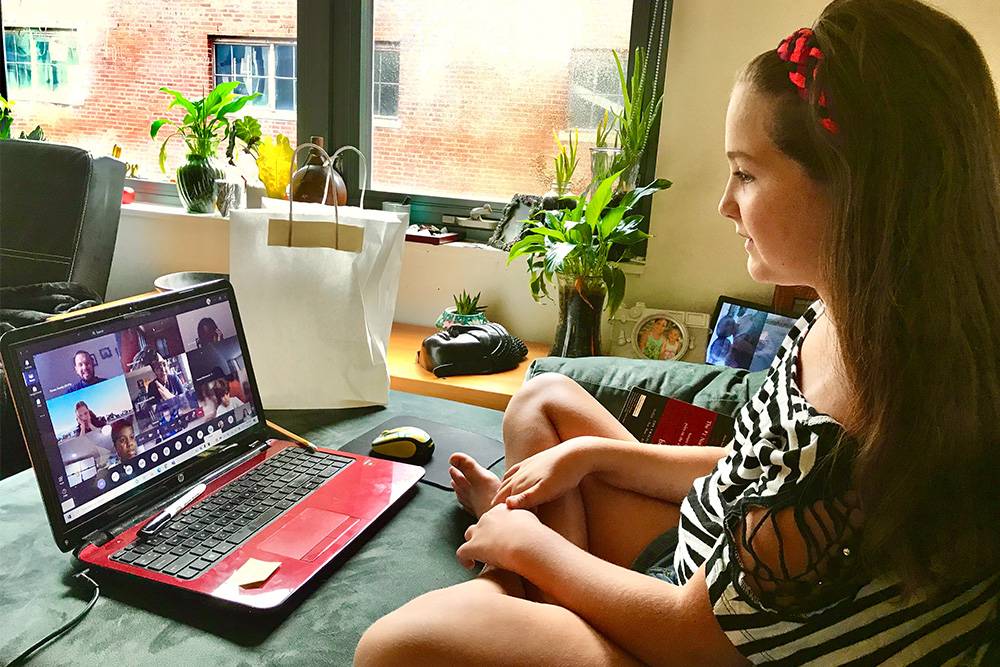
Can you still have a sustainable lifestyle during the COVID-19 crisis? Living sustainably is one of the best things you can do to protect the environment and human health.
During these difficult times of global social, economic, and environmental crisis, can you still adopt sustainability practices that make a difference on a global scale?
Now, more than ever, it's crucial to follow a sustainable lifestyle that protects people, animals, and the planet.
The coronavirus pandemic hit our societies hard but also creates new opportunities for eco-conscious, green, and ethical living. Sustainability has become more present in the mind of consumers during the crisis and subsequent lockdown.
To help build a more responsible and eco-friendly future, here are some easy tips for sustainable living during the COVID-19 crisis.
Panaprium is independent and reader supported. If you buy something through our link, we may earn a commission. If you can, please support us on a monthly basis. It takes less than a minute to set up, and you will be making a big impact every single month. Thank you!
1. Wear sustainable masks

Especially during the coronavirus pandemic, take extra care of your health and the well-being of your family by wearing sustainable face masks.
The best face masks are sustainable and affordable, soft, lightweight, and easy to clean. They contain eco-friendly materials that are also durable and moisture-wicking.
Thankfully, many sustainable brands make consistent efforts to protect the welfare of people and the planet.
Wear masks made from blends of natural fibers that help you feel comfortable, protect your health and your fellow humans without breaking the bank.
2. Cook and eat at home

Learn to cook delicious meals at home to save money and avoid putting your family's health at risk during the COVID-19 crisis.
This also limits the amount of waste you create as you won't have to buy food on the go. You can reduce how much packaged food you need if you cook and eat at home.
Making your meals is also a great way to eat lighter, healthier, and reduce your ecological footprint.
Cook your meals in your kitchen with seasonal products, and bring them with you if you must go out to work.
Eat more plant-based meals to maintain good health, save animal lives, and protect the environment. Limit how much meat and dairy products you eat to reduce your impact on the planet and ecosystems.
While only a few people are vegan, many are actively trying to eat more plant-based foods, especially during COVID-19.
Lower your consumption of animal-derived products, such as milk, cheese, cream, honey, most alcohols, fish, eggs, chicken, beef, pork, and turkey.
Instead, you can easily add berries to oatmeal bowls for breakfast, make salads or lettuce wraps for lunch, or cook a vegetable stew for dinner.
3. Use and wash cotton towels

Forget tissues and paper towels if you want to have a sustainable lifestyle. Instead, use durable cotton towels that you can wash and reuse many times over.
Wash them thoroughly with hot water after every use to sanitize them, eliminate bacteria, germs, and viruses.
Coldwater washing does the job for most fashion items, beddings, and linens in normal times. But during the coronavirus pandemic, take extra care to wash your things at a higher temperature.
4. Only shop for what you need

Buy less and only what you need to limit how much time you spend outside and put your family's health at risk.
If you make a conscious effort to only shop for what is necessary, you will increase your budget, do good for the planet, create less waste and pollution.
Adopt a more sustainable approach to shopping and living and move away from excessive consumption.
Take time during the COVID-19 crisis to carefully think about how you spend your money and plan for the future. Put your health and safety first, and then your finances.
5. Buy sustainable online

Look for products made with natural, organic, compostable, biodegradable, reusable, and recyclable materials. Shop in bulk whenever you can and avoid unnecessary packaging as often as possible.
Buy products that contain healthy and safe ingredients. Look for brands that minimize their social and environmental impacts. Shop for more durable and high-quality items that last longer.
Did you know that returned fashion items can double the emissions from transporting the products you bought online? If you return them, you negatively impact the environment. So avoid it if you can.
You can also buy second-hand items to save money and limit waste. The resale industry is rapidly growing for many good reasons. It's a great way to find deals and unique pieces that no one else has.
You can easily encourage a more sustainable way of living by discovering exclusive items while browsing resale sites or online marketplaces.
6. Bring reusable shopping bags

Bring your reusable shopping bags to the stores to limit plastic waste. The major problem of plastic is litter. Most plastic bags end up in landfills to decompose or be incinerated.
If you must go to brick-and-mortar locations to shop, why not bring reusable shopping bags with you? You can also reuse plastic or cardboard containers you may already have.
Keep in mind that the clothes you wear and the fibers in your reusable bags can transport bacteria, germs, and viruses such as COVID-19. Be sure to wash them carefully every time you use them.
7. Buy locally-sourced products

Buy organic products made locally to reduce greenhouse gas emissions from production and transportation. Support initiatives that favor local manufacturing and material-sourcing.
Especially in difficult times such as the global COVID-19 crisis, creating new opportunities to support the local economy and the wellbeing of local communities is a priority.
Buy food, clothes, and beauty products made locally and organically as much as you can. By choosing local and organic items over conventional products, you reduce your ecological footprint drastically.
You can also help local farmers and workers and empower them to provide sustainable livelihoods for families.
The coronavirus pandemic has brought most factories to a standstill. Many retail stores closed down and businesses went bankrupt. Thousands of local artisans and workers are fighting for survival around the world.
It's urgent to provide work to underserved communities to help them and their families survive through the next crisis.
8. Reuse, repurpose, recycle

Recycle any paper, glass, metals, and plastics that you use. Recycling highly reduces the amount of waste going out into the world.
You can also reuse, repurpose, and upcycle old items. For example, you can turn old clothes into tote bags or cleaning rags. It's a great way to save money, use fewer resources, water, and energy.
Upcycling allows you to turn old items into new products that are more beneficial and worthwhile without breaking them down completely.
9. Grow crops in your garden

Try to grow your fruits, vegetables, herbs, and spices in your garden. Many sustainability apps make it easy for you to start an urban farm and grow plants at home.
Growing produce decreases your ecological footprint by eliminating the need for extra packaging, transportation, and refrigeration. You can even use your garden to compost food waste and other compostable goods.
10. Consume less water and energy

For sustainable living during COVID, reduce your consumption of water and energy. Consume natural resources responsibly, and try to conserve them as much as possible.
With just a few simple tips, you save money and lower your environmental footprint.
Air dry your laundry instead of using the dryer, avoid elevators, turn off lights and other electronics, use a pressure cooker and LED bulbs as they need less energy to function.
You can also fill the dishwasher all the way, take shorter showers, wash your car less often, and capture rainwater to water your plants.
11. Use green transport

If you need to go out, ride a bike instead of taking a car. If you use green transport instead of conventional ways of moving around, you can help limit climate change drastically.
12. Donate to charity

Donate items that are still in good condition to charitable organizations. It's often a lot easier than trying to sell them and helps communities in need.
Check out the many charities in your area that accept donations. Blankets, towels, and linens can go to animal shelters.
You can donate other used items to homeless and women's shelters, family service agencies, immigrant support groups, and churches.
If you want to directly support communities and economies everywhere affected by the growing COVID-19 pandemic, consider financial donations to people and organizations that help fight the pandemic.
Support the global response to the coronavirus through the COVID-Solidarity Response Fund for the World Health Organization (WHO). Or give online to one of the many Fund partners in your country.
You can even consider donating plasma at Red Cross Blood if you have fully recovered from COVID-19 for at least two weeks. Your donation may help save the lives of other patients.
The plasma in your blood may contain antibodies that fight the coronavirus and can be evaluated as a possible treatment.
Was this article helpful to you? Please tell us what you liked or didn't like in the comments below.
About the Author: Alex Assoune
What We're Up Against
Multinational corporations overproducing cheap products in the poorest countries.
Huge factories with sweatshop-like conditions underpaying workers.
Media conglomerates promoting unethical, unsustainable products.
Bad actors encouraging overconsumption through oblivious behavior.
- - - -
Thankfully, we've got our supporters, including you.
Panaprium is funded by readers like you who want to join us in our mission to make the world entirely sustainable.
If you can, please support us on a monthly basis. It takes less than a minute to set up, and you will be making a big impact every single month. Thank you.
































0 comments